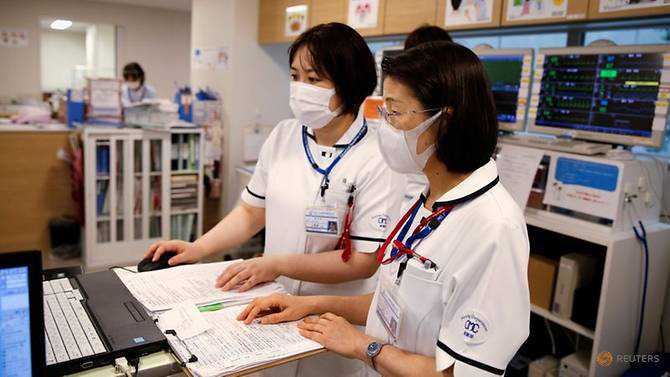Japan's Osaka metropolis crumples under COVID-19 onslaught
24 May, 2021

Hospitals in Japan's second greatest city of Osaka are buckling under an enormous wave of new COVID-19 infections, performing out of beds and ventilators as exhausted doctors warn of a "system collapse", and advise against holding the Olympics come early july.
Japan's western region residence to 9 million people is definitely suffering the brunt of the fourth wave of the pandemic, accounting for a third of the country's death toll in May, although it constitutes just 7 per cent of its population.
The speed of which Osaka's healthcare system was overwhelmed underscores the challenges of hosting a significant global sports event in two a few months' time, particularly as only about half of Japan's medical staff have completed inoculations.
"Simply put, that is a good collapse of the medical program," explained Yuji Tohda, the director of Kindai University Hospital in Osaka.
"The highly infectious Uk variant and slipping alertness possess resulted in this explosive growth in the amount of patients."
Japan has avoided the large infections suffered by other countries, however the fourth pandemic wave took Osaka prefecture by storm, with 3,849 new positive tests found in the week to Thursday.
That represents a far more than five-fold leap over the corresponding period 90 days ago.
Just 14 per cent of the prefecture's 13,770 COVID-19 patients have been hospitalised, leaving almost all to fend for themselves. Tokyo's latest hospitalisation level, in comparison, is 37 %.
A federal government advisory panel sees costs of significantly less than 25 % as a trigger to consider imposition of circumstances of emergency.
By Thursday, 96 per cent of the 348 medical center beds Osaka reserves for serious virus instances were in use. Since March, 17 persons have died from the disease beyond your prefecture's hospitals, officials stated this month.
The variant could make even young persons very sick quickly, as soon as seriously ill, patients think it is tough to produce a recovery, said Toshiaki Minami, director of the Osaka Medical and Pharmaceutical University Hospital (OMPUH).
"I believe that as yet many young people thought these were invincible. But that can not be the case this time around. Everyone is equally bearing the chance."
BREAKING POINT
Minami said a dealer recently told him that stocks and shares of propofol, a key drug used to sedate intubated people, are running suprisingly low, while Tohda's medical center is running short of the ventilators essential for severely ill COVID-19 patients.
Looking after critically ill patients when confronted with infection risk possesses taken a serious toll on staff, explained Satsuki Nakayama, the top of the nursing department at OMPUH.
"I've got some intensive attention unit staff saying they reach a breaking point," she added. "I need to think about personnel change to bring in people from other medical center wings."
About 500 doctors and 950 nurses work at OMPUH, which manages 832 beds. Ten of its 16 ICU beds have already been dedicated to virus people. Twenty of the roughly 140 serious patients used by the hospital passed away in the ICU.
Yasunori Komatsu, who heads a union of regional government employees, said circumstances were dire as well for public well being nurses at local well being centres, who liaison between people and medical institutions.
"Many of them are accumulating 100, 150, 200 time of overtime, and that has been going about for a year nowadays ... when on duty, they sometimes go back home at 1am or 2am in the morning, and go to bed only to be awakened by a telephone call at 3am or 4am."
Doctors with firsthand experience of Osaka's have a problem with the pandemic have a negative take on holding the Tokyo Game titles, set to perform from Jul 23 to Aug 8.
"The Olympics ought to be stopped, because we curently have didn't stop the circulation of new variants from England, and next might be an inflow of Indian variants," said Akira Takasu, the top of emergency drugs at OMPUH.
He was referring to a variant first within India that the Community Health Organization (WHO) designated as being of concern after first studies showed it pass on more easily.
"In the Olympics, 70,000 or 80,000 athletes and the persons will come to the country from around the world. This may be a result in for another disaster in the summertime."
Source:
